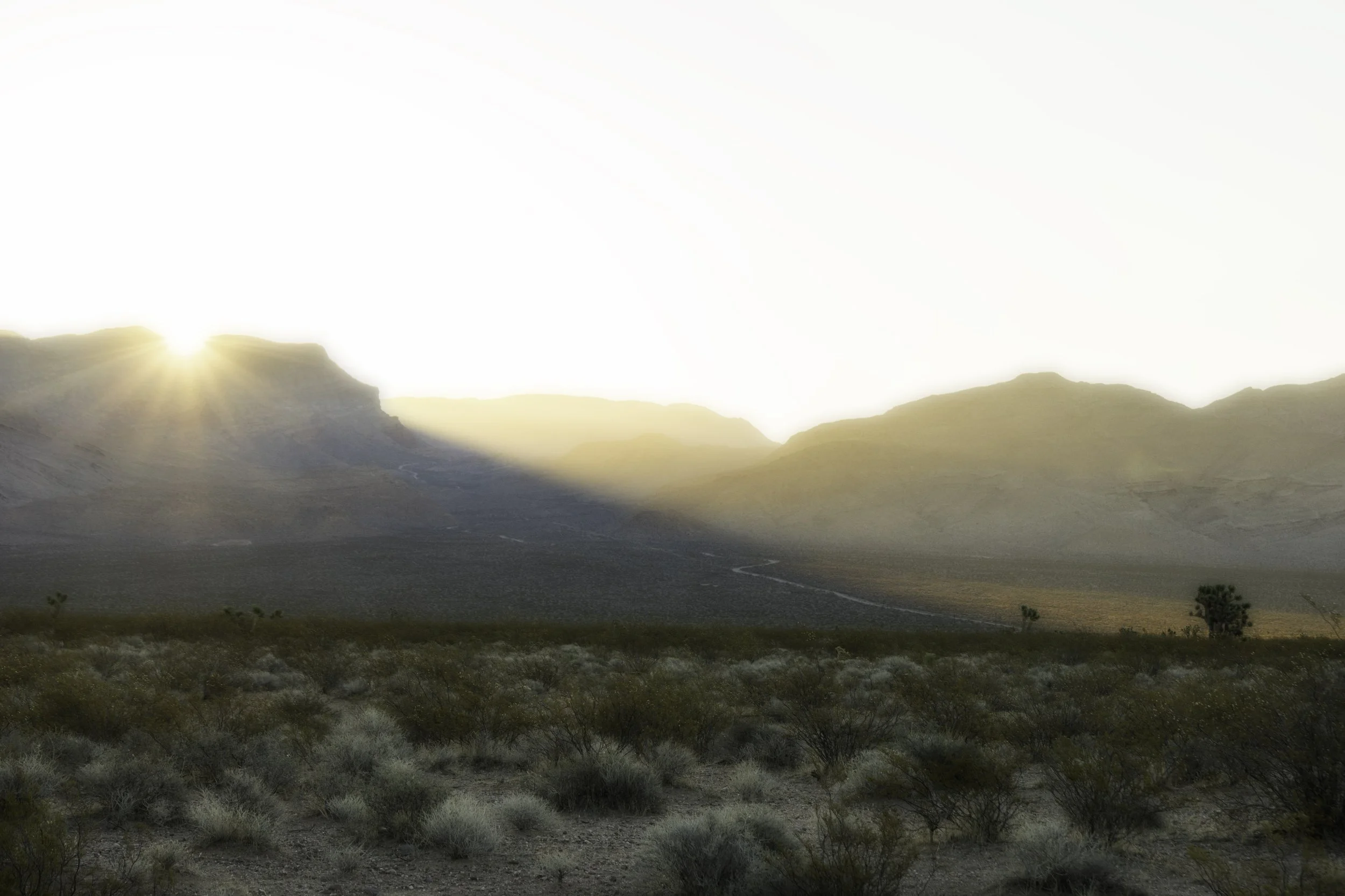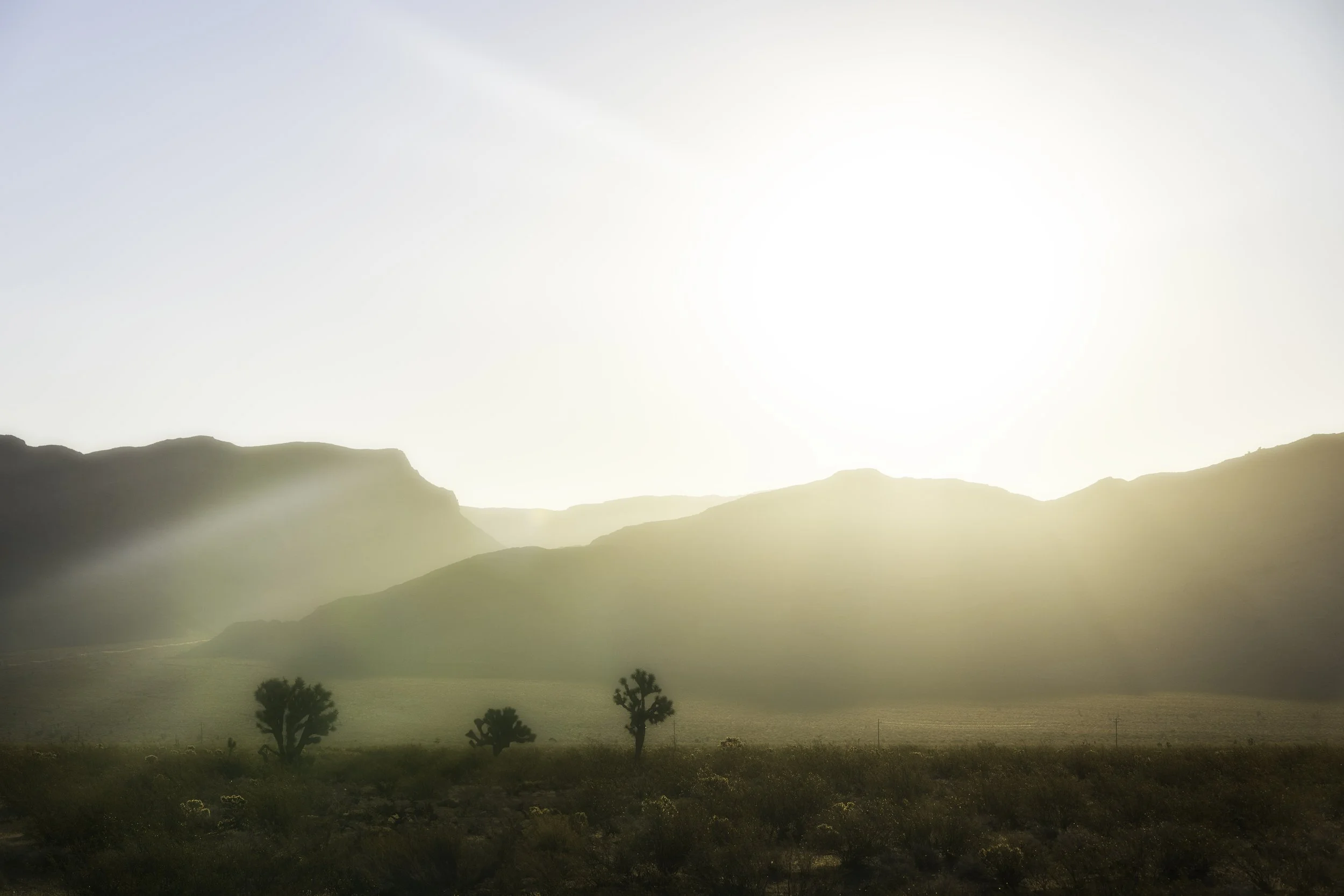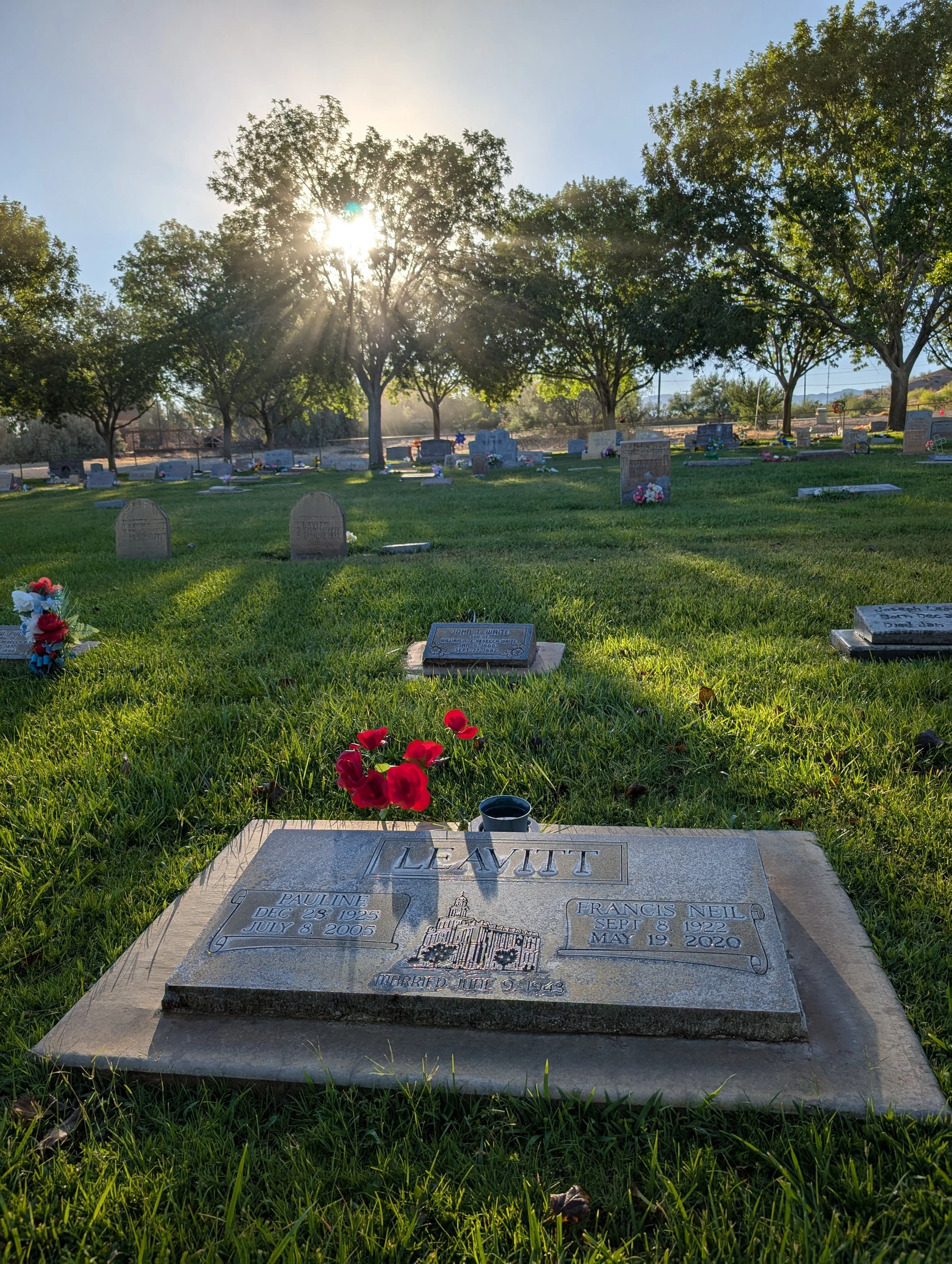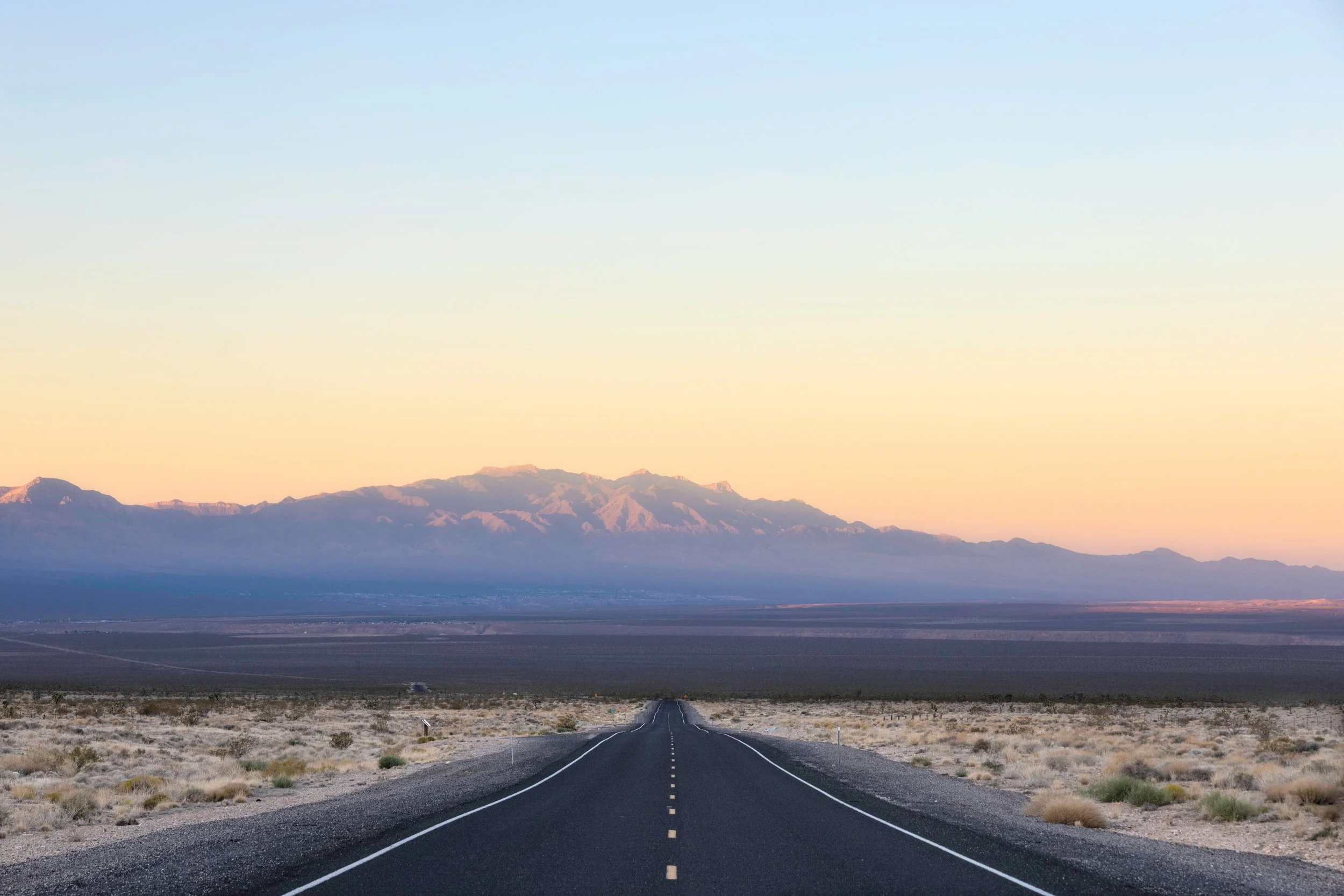Downwinders
July 26, 2025… I am certain I’m the only tourist in Bunkerville, Nevada right now. There are at least three reasons for this. One is that Bunkerville consists of only a post office, a couple churches, a public library, a cemetery, an elementary school, a park you can throw a frisbee across, 1,069 hard working residents, and a fine ditch that occasionally has water in it. A second is that the average high temperature in July is 106 degrees. A third is that this is the birthplace and former stomping grounds of far-Right, antigovernment activist Ammon Bundy, who as far as I know still has a ranch near here. Now that I’m thinking about it, this fact could possibly draw tourists, but not the savory type — more the tart type, I’d wager. Fortunately, it’s not yet 7 o’ clock on a Saturday morning and I’m visiting the town cemetery; the likelihood of unshaven men with cowboy hats and sawed-off shotguns hunting long-haired federal employees in small town graveyards seems low at this hour.
Grandma and Grandpa’s graves are still swathed in shade and dewy green grass this early in the morning. My grandma died in 2005 while I was driving a U-Haul to the East Coast to start my first job after graduating college. She waited in the ground in Bunkerville for 15 years before I helped carry my grandpa’s casket to a hole next to her’s under a sweltering noontime sun. Now they rest here together in this tiny town, which used to be a lot smaller. Less than 300 folks called Bunkerville home when Grandpa met Grandma here in the autumn of 1942, a couple years after he graduated high school. The next spring they were sitting on a low hill above town when Grandpa twisted a piece of baling wire around a little shard of glass, bent it into the shape of a ring, and asked Grandma to marry him.
Joshua trees at sunrise; Littlefield, Arizona
They lived in Bunkerville off and on. They were here in the 1950s when the U.S. government tested nuclear bombs north of Las Vegas, 90 miles west. The farmers could feel the mountains shake sometimes, see the mushroom clouds blooming up into the clouds. Fallout would drift down like snow. No one knew what was going on so life carried on as normal. Until it didn’t. Grandpa always thought the years of breathing nuclear dust played a central role in Grandma’s health problems that ultimately laid her low. “Downwinders” is what they called the simple people living in the simple communities downwind of the test site. I guess we’re all downwinders somehow, down wind of something coming apart for reasons beyond our control. The pieces settle down on us — unwanted, unwarranted, but undeniable — and we’re never the same again. But nothing ever stays the same. Changing, for better or worse, is just a consequence of breathing.
I can’t put my finger on exactly why I’m here. I go down to one knee and touch the marble headstones and I think of Jews brushing their fingers over a mezuzah as they leave home. A reminder of some promise, some anchor, something solid to tie off to. I’ve got a couple bags strapped to my motorcycle over in the little parking lot. I’m not going anywhere radical, but I’m going. A rooster calls, a cow lows, little desert birds chitter in the leafy trees rimming the cemetery. Somebody’s up early the next lot over baling hay, trying to beat the heat. The dust they stir up hangs lightly in the air, outlining the day’s first rays of sunshine reaching through the trees. God’s light, I think they call it. I love that light isn’t God’s unless it’s coated with dirt. This makes me feel better about a lot of things.
Bunkerville, Nevada.
Not only am I probably the only tourist in Bunkerville, I’m very likely the only person in town crying this early in the morning. I feel like most people need at least until 8 o’ clock on a Saturday to work up a good snivel. There is something profoundly moving about two people surrendering themselves to one another for long enough in life that they want to be dead side by side, to lie down together forever under summer’s relentless heat and winter’s barrenness, to do whatever it is that the dead do.
On one knee in the wet cemetery grass, I think how the marrow of surrender is intent and volition, and how this reality runs counter to popular notions of soulmates and meant-to-be’s. This fantasy of fated soulmates reads a kind of inexorable gravity into love. It pretends love is effortless if it’s shared with The One. But the landfills of lost love are littered with the husks of promising relationships thrown away when gravity fails to effortlessly pull happiness from hardship. Things fall apart if you don’t choose to hold them together, and even then they come apart sometimes anyway.
Grandma and Grandpa chose one another. They held together what they could, spent their lives trying to reassemble what they couldn’t, and accepted the rest with grace. They didn’t know they were Downwinders, and by the time they did it was too late. But they knew some things will break down, the wind is going to blow, it won’t always blow fair, but at the end of the day all that dust and debris is what makes the sunshine sacred.
I straighten up. The day’s heat is starting to build. There’s a lot of road ahead, hot and windy and pretty and unjust and hellish and holy. So I fire up the bike and follow that road away from home. But in this world, a straight line is eventually going to bring you back to where you started. I’m thinking about that as Bunkerville melts into the desert behind me. Grandma and Grandpa knowingly watch me leave.
Northwest Arizona.







